Follow Us
Medical & Health Sciences Latest

Dr Maka Tsulukidze – Dr David Reardon | After the Loss: Exploring Cardiovascular Risks Linked to Pregnancy Loss
Carrying a pregnancy is associated with numerous health problems, but little is known about the impact of pregnancy loss on heart health. Dr Maka Tsulukidze from the Florida Gulf Coast University, Dr David Reardon, based...
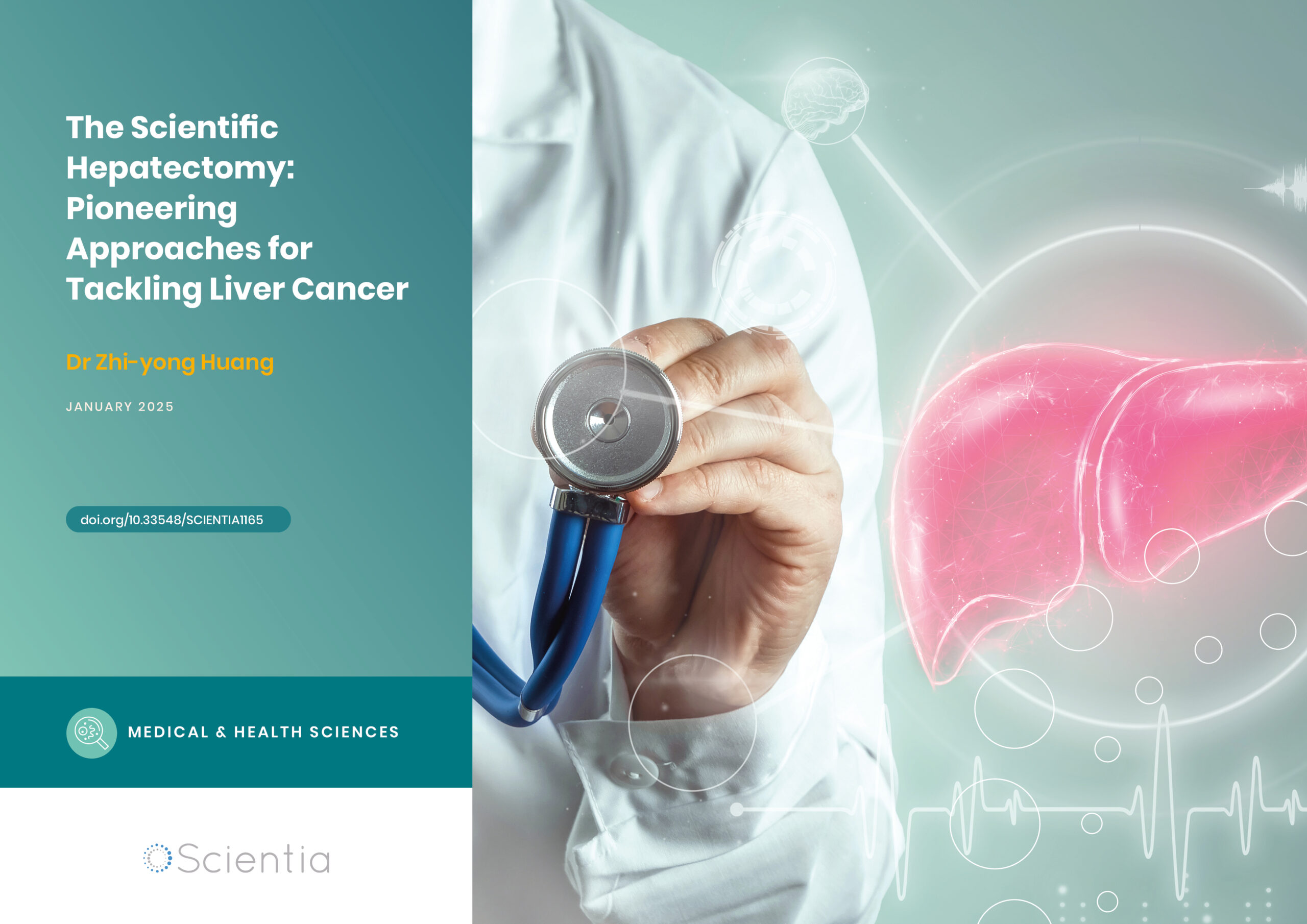
Dr Zhi-yong Huang | The Scientific Hepatectomy: Pioneering Approaches for Tackling Liver Cancer
Cancer research is an ever-evolving field of science fuelled by the pressure of the ongoing need to find new approaches to tackle this killer. Dr Zhi-yong Huang is based at the Tongji Medical College at Huazhong University of Science and Technology in China. He...

Dr Denise Faustman | An Unexpected Ally in the Fight Against Diabetes: The BCG Vaccine
Diabetes is a widespread health concern affecting millions worldwide. Recent research suggests an unexpected ally in the fight against this disorder: the Bacille Calmette-Guérin (BCG) vaccine. Originally developed to prevent tuberculosis, BCG is now showing...

Dr Michael Hicks | Creating Skeletal Muscle from Stem Cells
Recognising the precise steps involved in the differentiation process of stem cells into various cell types is crucial to regenerative medicine. Researchers face the specific challenge of how to fine-tune and optimise protocols for directing stem cells to...
Earth, Environment & Agricultual Sciences
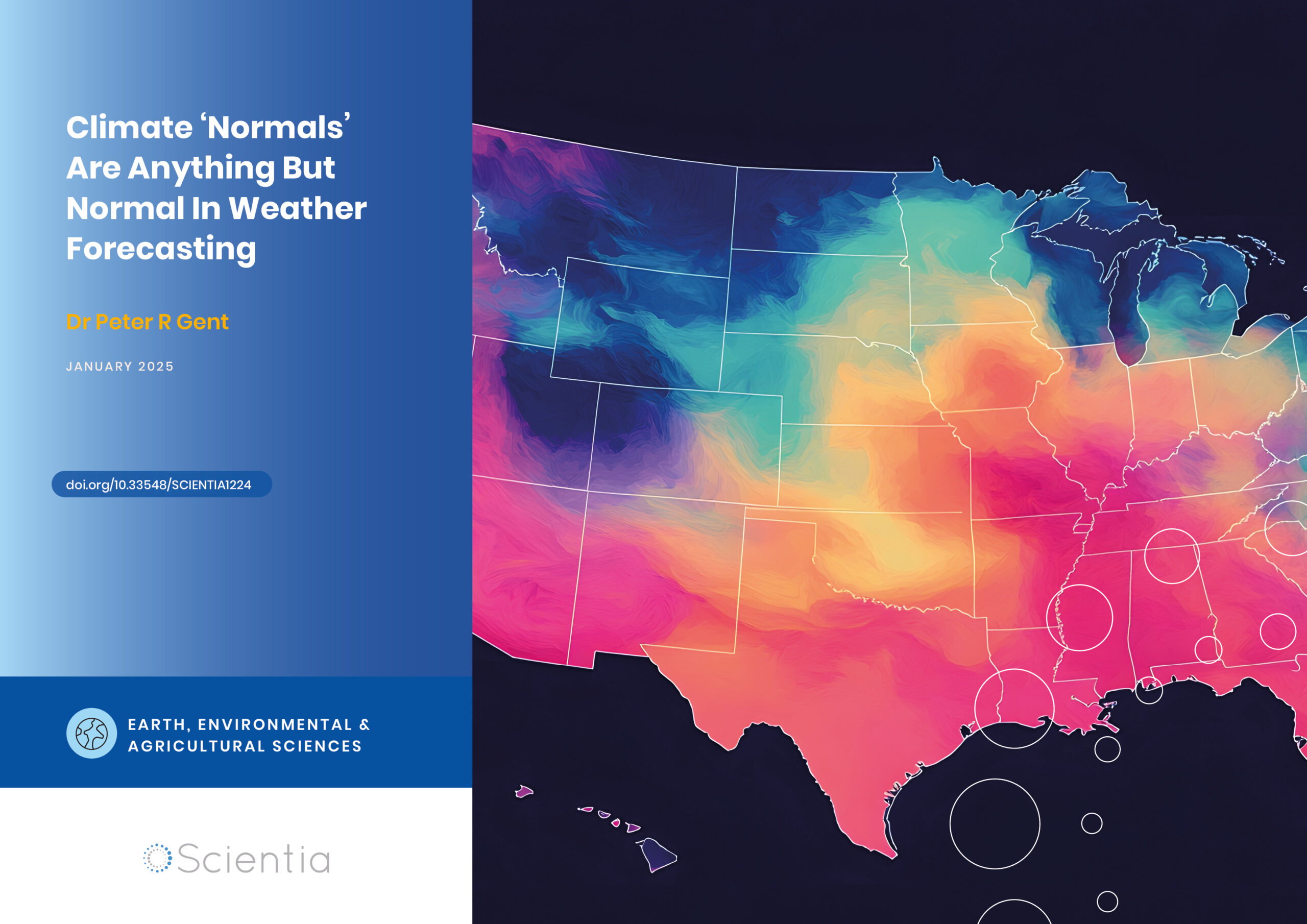
Dr Peter Gent | Climate ‘Normals’ Are Anything But Normal In Weather Forecasting
Weather forecasters and meteorologists have long used the term ‘climate normal’ to describe average temperatures, but this seemingly innocuous phrase might be causing widespread public misunderstanding. New research suggests that describing temperature data as ‘normal’ leads many people to incorrectly assume these values represent the most common or expected temperatures when, in reality, actual temperatures regularly deviate significantly from these averages.

Dr Yassine Ait Brahim | When the Sahara Grew Green: Constraining the ‘Green Sahara’ Across Time and Space
Understanding the dynamics of Earth’s ancient climate is an important avenue of research. By examining past climate variability, we can improve our understanding of natural climate cycles and factors influencing current climate change. Dr Yassine Ait Brahim of...

Dr Festus O Amadu | The Forests of Liberia: A Pathway to Poverty Alleviation and Food Security
In Liberia, half of the population lives within 2.5 kms of a forest. Many households rely on these delicate ecosystems to support themselves. A recent study by Dr Festus O Amadu at Florida Gulf Coast University and Dr Daniel Miller at the University of Notre...

Dr Siddharth Narayan | Wetlands Versus Coastal Development: Effects on Flood Damage
Hurricane storm surges pose serious damage risks to the United States’ coastlines. Tidal wetlands protect communities by acting as barriers, reducing the effects of these surges. However, simultaneous coastal development and wetland loss can lead to increased...
Physical Sciences & Mathematics Latest

Revolutionary Battery Technology Promises to Transform Energy Storage
The world of energy storage is on the cusp of a significant breakthrough. As society increasingly shifts towards electrification, from personal devices to transportation and beyond, the limitations of current battery technology have become increasingly apparent. An innovative company in Tallahassee, Florida, is developing a revolutionary new battery that could transform how we store and use energy. The technology, developed by a team of experts at Piersica Inc., promises to deliver an energy density of 630 watt-hours per kilogram (Wh/kg)—approximately two and a half times higher than current lithium-ion batteries. This advancement will extend the range of electric vehicles, enable long-distance electric aircraft, and dramatically increase the battery life of portable electronics.
Engineering & Computer Science Latest

Revolutionary Battery Technology Promises to Transform Energy Storage
The world of energy storage is on the cusp of a significant breakthrough. As society increasingly shifts towards electrification, from personal devices to transportation and beyond, the limitations of current battery technology have become increasingly apparent. An innovative company in Tallahassee, Florida, is developing a revolutionary new battery that could transform how we store and use energy. The technology, developed by a team of experts at Piersica Inc., promises to deliver an energy density of 630 watt-hours per kilogram (Wh/kg)—approximately two and a half times higher than current lithium-ion batteries. This advancement will extend the range of electric vehicles, enable long-distance electric aircraft, and dramatically increase the battery life of portable electronics.
Arts, Humanities & Social Sciences Latest

Dr Festus O Amadu | The Forests of Liberia: A Pathway to Poverty Alleviation and Food Security
In Liberia, half of the population lives within 2.5 kms of a forest. Many households rely on these delicate ecosystems to support themselves. A recent study by Dr Festus O Amadu at Florida Gulf Coast University and Dr Daniel Miller at the University of Notre Dame sees sustainable forest management as a positive force in improving livelihoods and environmental outcomes in Liberia. The authors have produced a landmark national analysis of how participation in the ‘forest sector’ impacts Liberian households – providing policymakers with the evidence they need to prioritise development programmes.
Life Sciences & Biology Latest

Professor Sung-Hou Kim | New Insights into Ethnic and Genomic Diversity
Does our ethnic diversity translate to genomic diversity? New findings suggest that it might not and point instead to considerable genomic similarities across multiple ethnicities. Professor Sung-Hou Kim at the University of California, Berkeley, and his colleagues classified 164 ethnic groups into 14 genomic clusters spread across various geographical regions. Their findings reveal important new insights into our shared human genetic heritage.
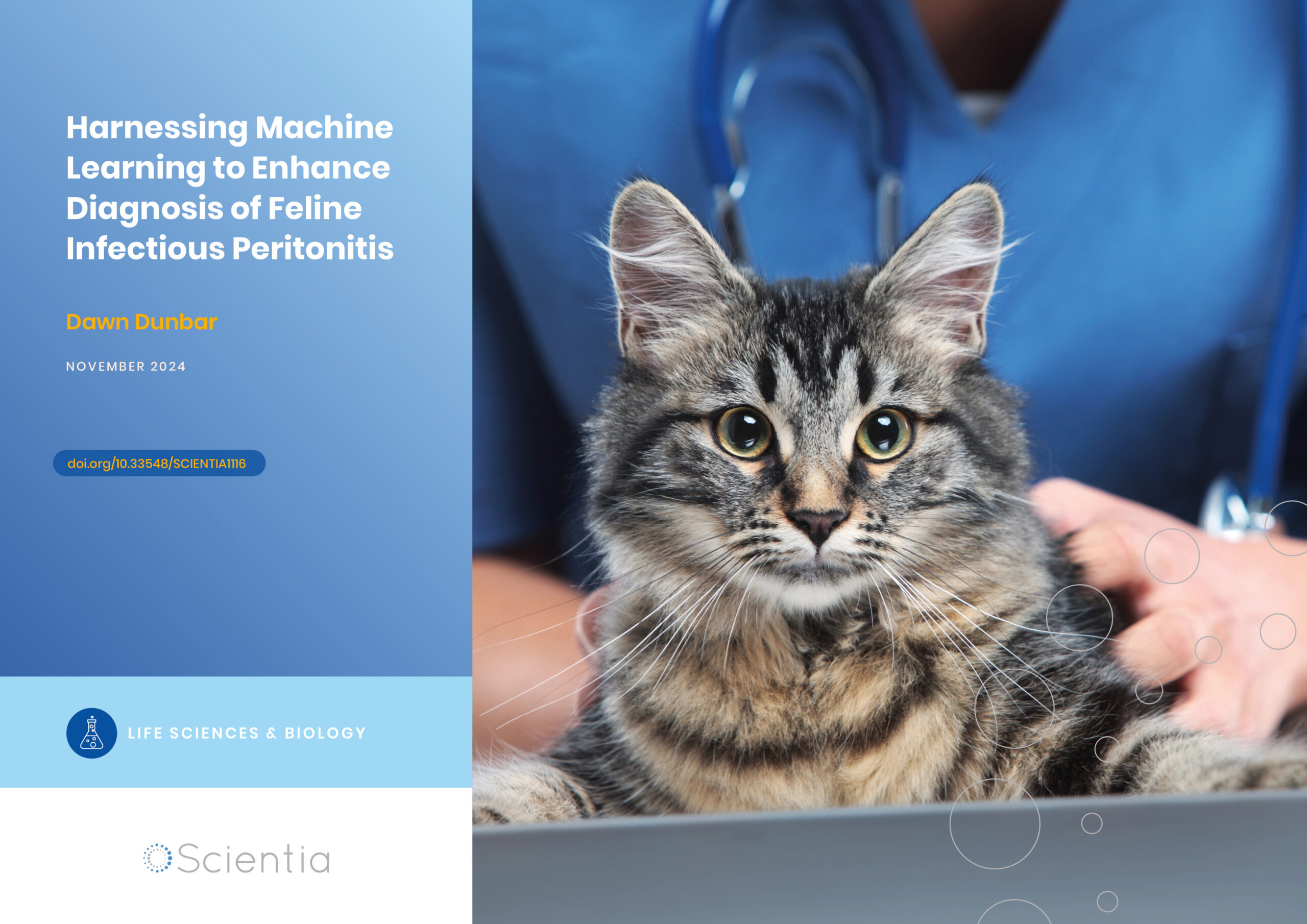
Dawn Dunbar | Harnessing Machine Learning to Enhance Diagnosis of Feline Infectious Peritonitis
Feline infectious peritonitis (FIP) is a severe and often fatal viral disease of cats which poses significant diagnostic challenges for veterinarians. Dawn Dunbar from the University of Glasgow is leading a research study with the goal of applying machine...

Professor Irene Díaz-Moreno – Professor Miguel A. De la Rosa | The Diverse Interactome of Cytochrome c: Beyond Respiration
All living things are comprised of cells, and to function, most of them use oxygen to break down food molecules to obtain chemical energy, a process known as cell respiration. Critical to this is the macromolecule cytochrome c, but this redox haemoprotein also...
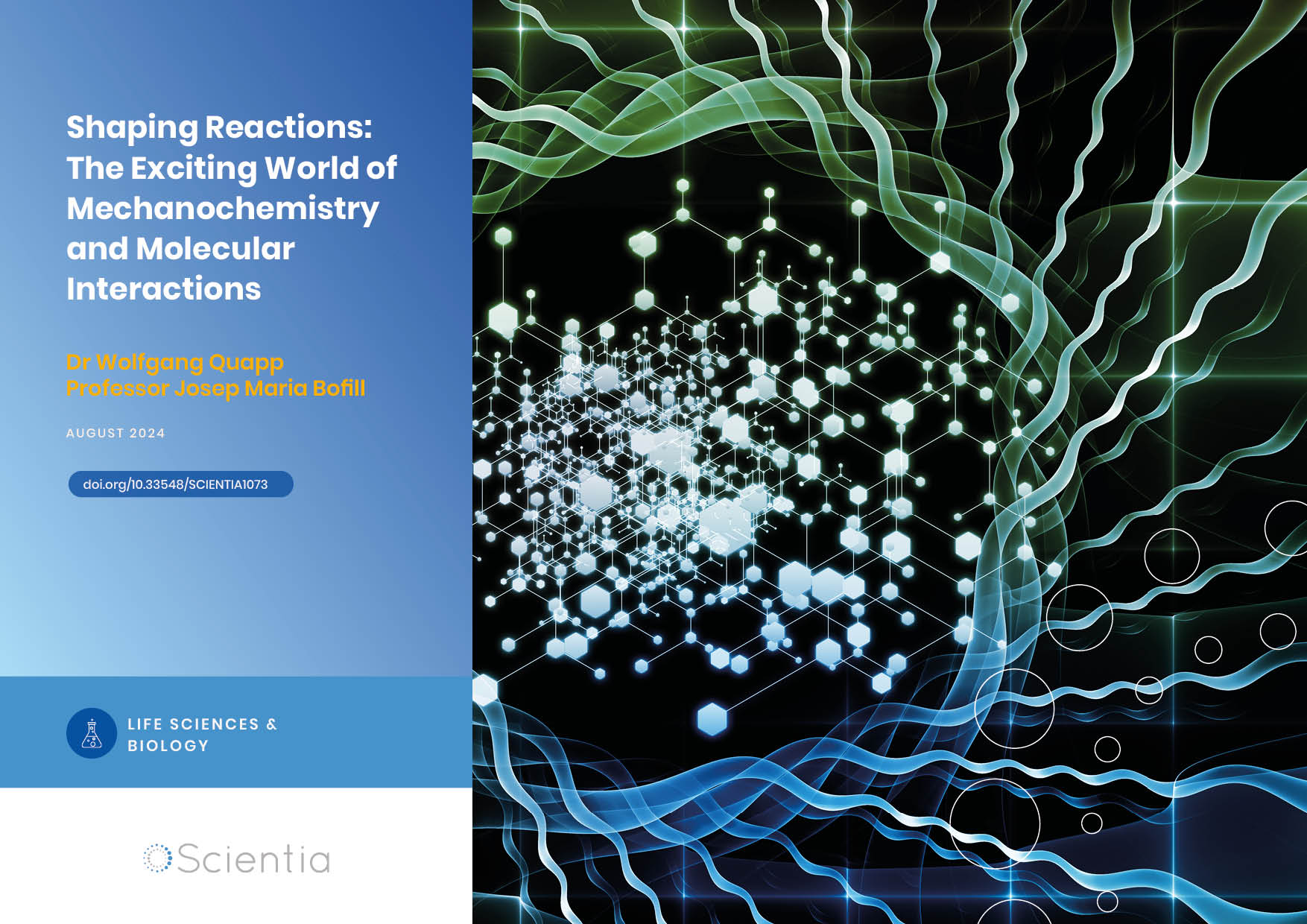
Dr Wolfgang Quapp – Professor Josep Maria Bofill | Shaping Reactions: The Exciting World of Mechanochemistry and Molecular Interactions
Dr Wolfgang Quapp and Professor Dr Josep Maria Bofill from the University of Leipzig and Universitat de Barcelona, respectively, are leading voices in the newly emerged sector of mechanochemistry. Their fascinating work reveals how external forces can manipulate...
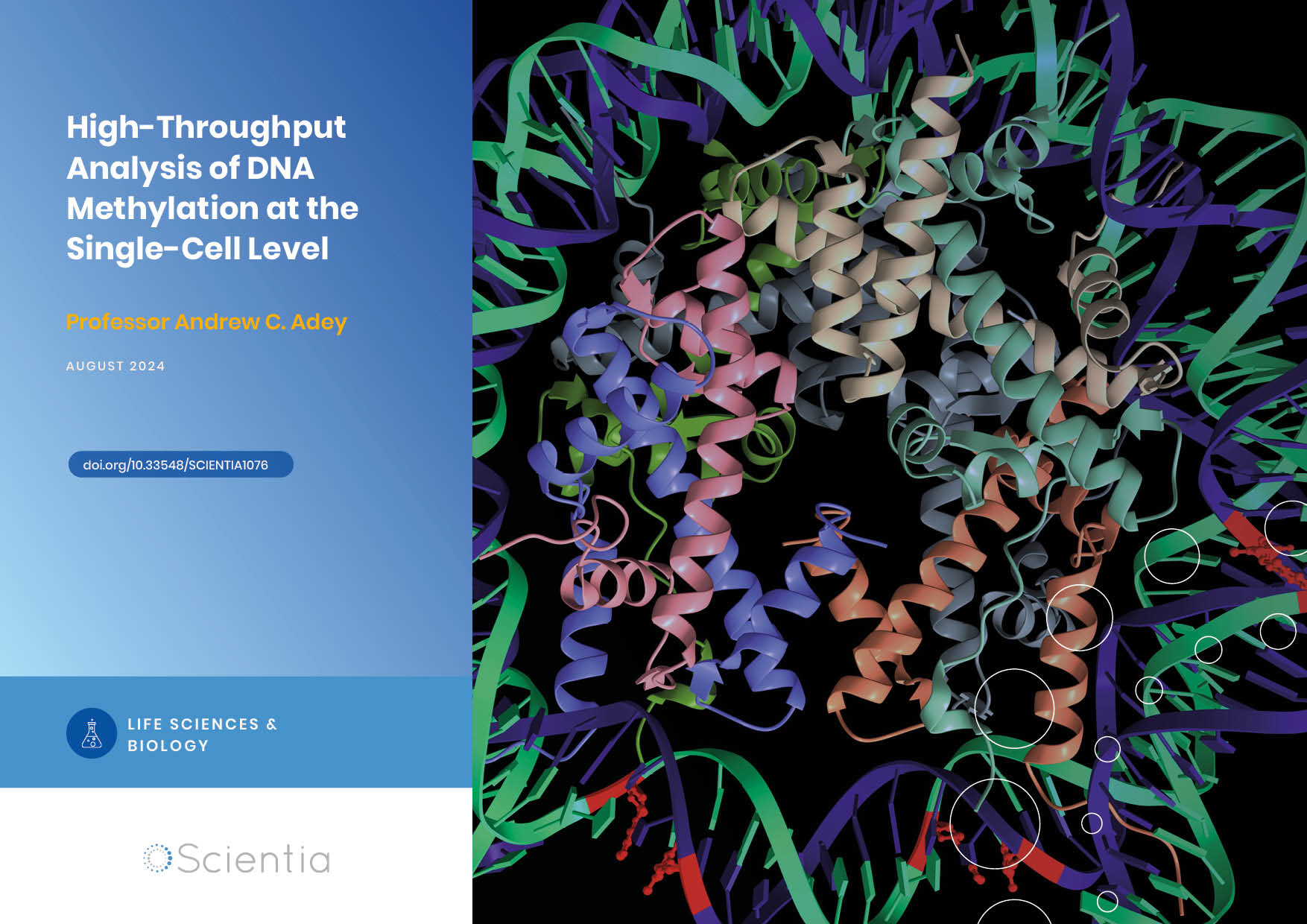
Professor Andrew Adey | High-Throughput Analysis of DNA Methylation at the Single-Cell Level
DNA methylation is a key epigenetic process. Conventional methods for analysing methylation have been cumbersome or technically unfeasible. Professor Andrew Adey at Oregon Health and Sciences University is developing high-throughput workflows that analyse the...

Professor Alan Templeton | When Fire Sparks Ecological Opportunity and Habitat Restoration
How far would you be willing to go to save an endangered species? Would you consider burning part of a forest as a solution? As unconventional as it may sound, conservationists sometimes resort to such measures to restore lost habitats. One remarkable example is...
Education & Training Latest

Professor Jean-Anne Stewart | Making Virtual Action Learning Effective for Leadership Development
New research shows that virtual action learning can be just as beneficial as face-to-face sessions for developing leadership skills, when implemented thoughtfully. A UK study of over 300 senior leaders by Professor Jean-Anne Stewart of Henley Business School at the University of Reading found that with proper facilitation, virtual action learning enabled valuable peer support, actions and reflection time, even during the challenges of the COVID-19 pandemic.
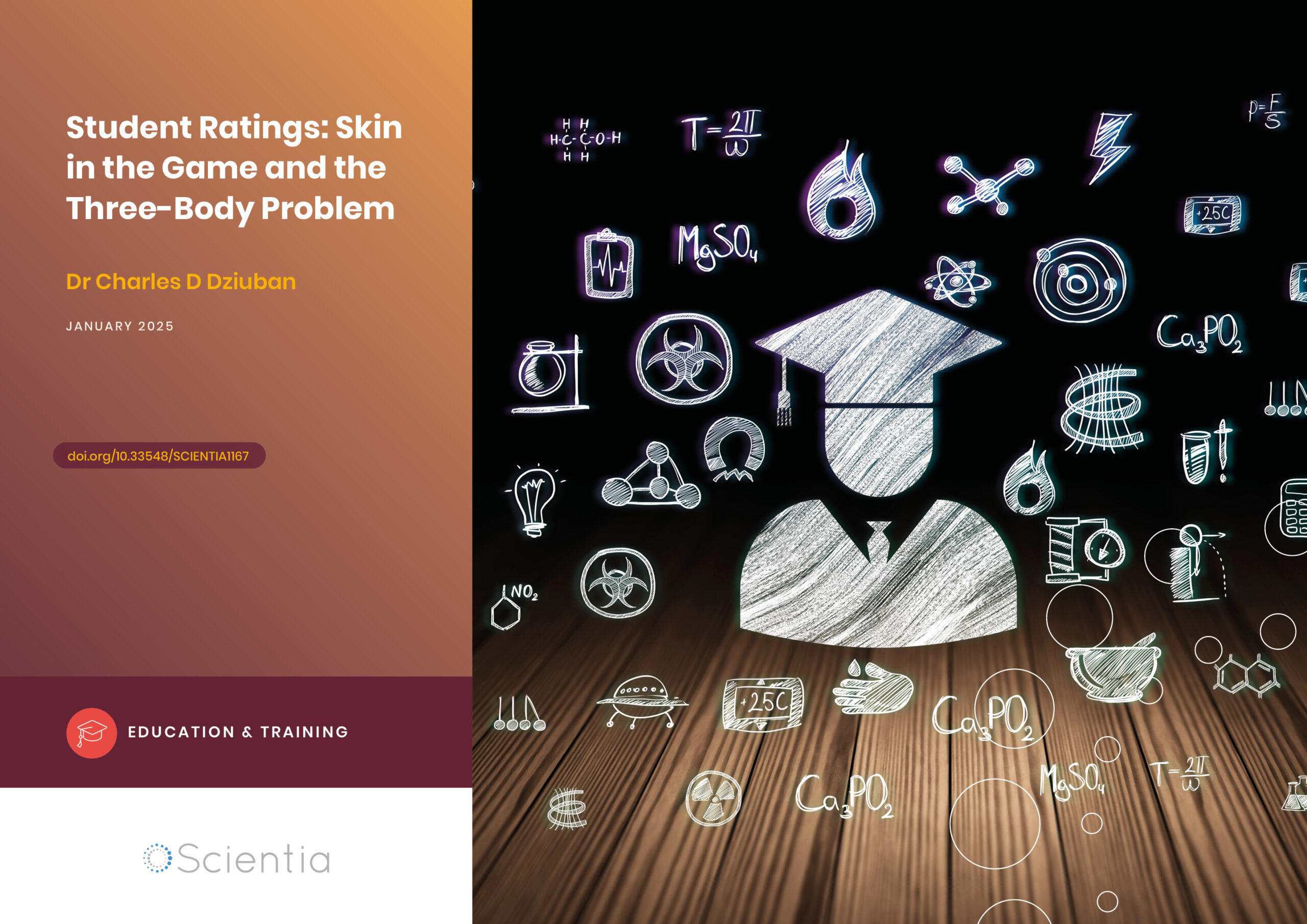
Dr Charles Dziuban | Student Ratings: Skin in the Game and the Three-Body Problem
An ongoing concern in higher education is how to include the student voice in teaching. Dr Charles Dziuban has dedicated much of his career to examining student and faculty outcomes as well as gauging the impact of online, blended and lecture capture courses in...
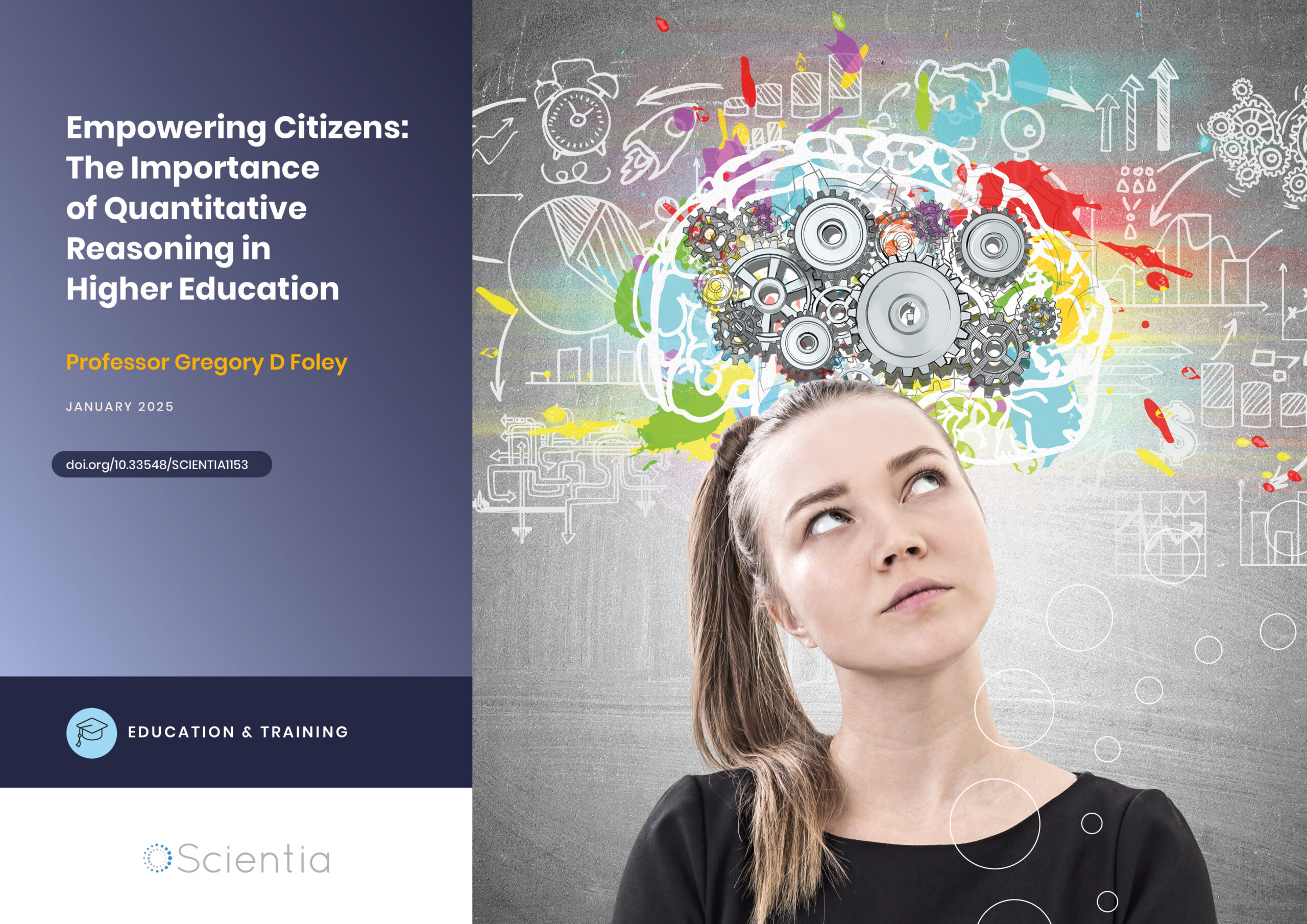
Professor Gregory D Foley | Empowering Citizens: The Importance of Quantitative Reasoning in Higher Education
Despite a growing emphasis on Quantitative Reasoning in education, particularly as universities develop courses that move beyond traditional math, its role in fostering critical citizenship remains underexplored. Professor Gregory D Foley’s research studies the...
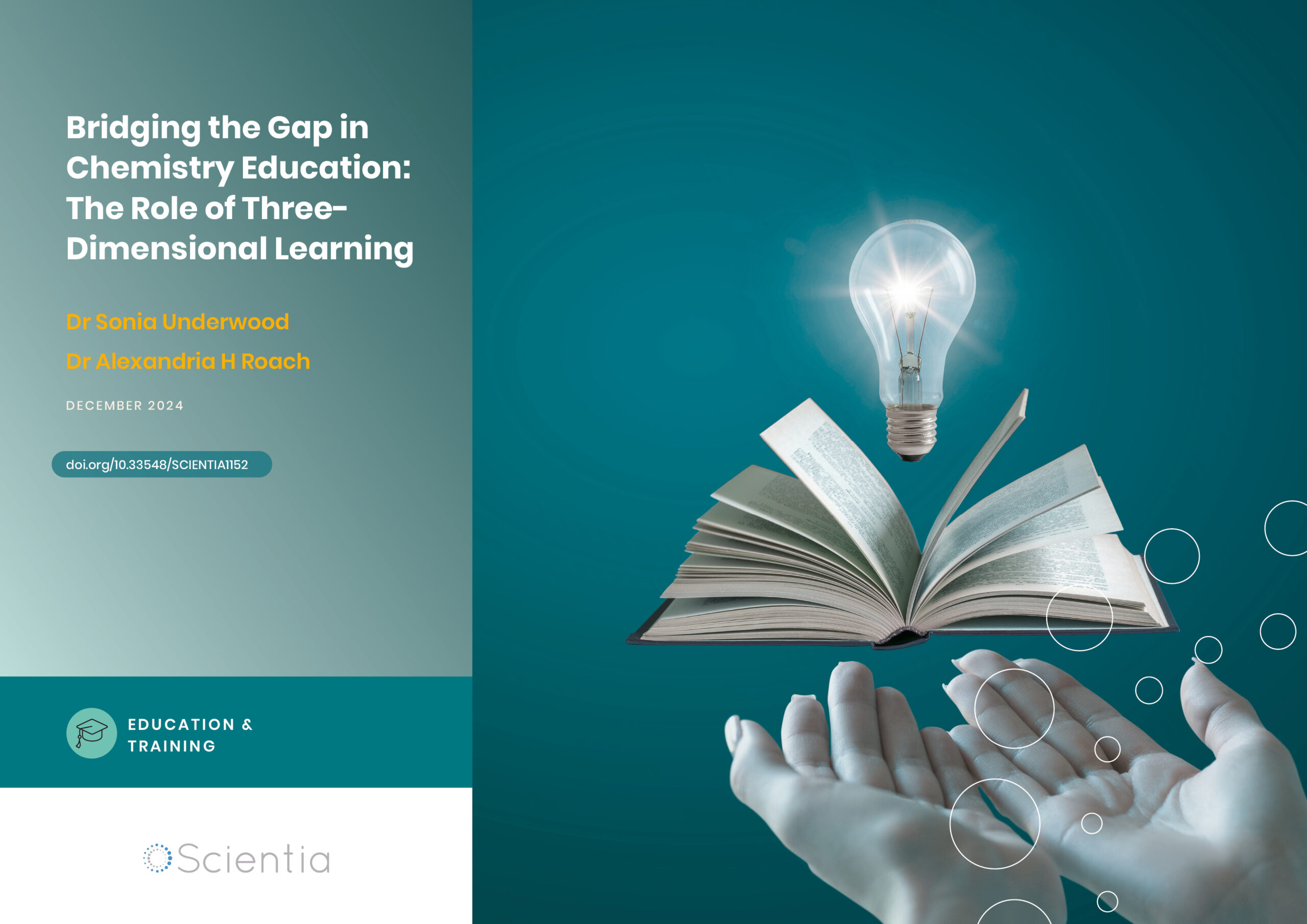
Dr Sonia Underwood | Bridging the Gap in Chemistry Education: The Role of Three-Dimensional Learning
Understanding complex concepts in chemistry can be challenging for students, especially in large classes where individualised attention is limited. Traditional multiple-choice questions often focus on rote memorisation rather than deep understanding. Dr Sonia...

Dr Aimie Brennan | Challenging the Changing Landscape of Initial Teacher Education
Initial teacher education in Ireland was reconceptualised in 2011 to embody a more practical, solution-based ethos in place of the traditional emphasis on foundational subjects such as sociology. Dr Aimie Brennan of the Marino Institute of Education and Dr...

Michael Y Schakelaar | Hybrid PhDs: Integrating Biomedical and Educational Research
Biomedical science-based PhDs are often research-focused, designed to hone a candidate’s expertise in a specific field. However, subsequent careers in university settings frequently entail substantial teaching responsibilities, with PhD graduates unprepared for...
Psychology & Neuroscience Latest

Professor Steven Wayne Evans | Making a Difference for Adolescents with Attention-Deficit/Hyperactivity Disorder
Tailored interventions are required if adolescents with Attention-Deficit/Hyperactivity Disorder (ADHD) are to meet their full potential. Research by Professor Steven Evans at Ohio University illuminates the effectiveness of these interventions and offers valuable insights for families, educators, and clinicians. From the significant impact of compliance with interventions to the diverse response patterns among adolescents, Professor Evans’s research underscores the importance of personalised approaches in fostering success. By understanding the nuances of ADHD management and investing in evidence-based strategies, clinicians and educators can better support the well-being and future prospects of adolescents navigating this complex neurodevelopmental condition.

Dr Robert W Stackman, Jr – Dr Sarah J Cohen | Of Mice and Matching: When Rodents Show They Can Match Pictures to Objects
Researchers at Florida Atlantic University have discovered that mice possess a sophisticated cognitive ability previously thought to be limited to primates and certain bird species – they can recognise real objects after only seeing pictures of them. This...

Dr Dagmar Zeithamova | How Our Brains Create Categories: A Look Inside the Mind
Our brains have an incredible ability to organise information into meaningful categories, allowing us to make sense of the world around us. However, this categorisation process can also bias how we perceive and remember this world. Dr Dagmar Zeithamova and her...

Leadership – How Does Successful Leadership Work in Times of Change?
Article written by Dr Barbara Nuetzel Challenges for Leaders in Today’s World The digital revolution has changed our world – ‘VUCA’ – the conditions which now shape the lives of many people worldwide. VUCA stands for volatility, uncertainty, complexity, and...

Professor Marco Cavaglià | Unlocking the Brain’s Hidden Code: The Lipid-Centred Theory of Brain Functioning
For decades, scientists have explored how the brain processes information, stores memories, and generates thoughts. Traditional theories focus on the electrical and chemical signals exchanged between neurons. However, a new and innovative approach is emerging,...

Dr Leon Lack | Unlocking Circadian Mysteries in Sleep Disorders
Sleep disorders can significantly disrupt daily life, but their underlying causes are not always clear. Dr Leon Lack from Flinders University has spent decades studying these disorders and how to treat them. By shedding light on the role of circadian rhythms in...
Business, Economics & Finance Latest

Christopher Gilbert | A Thorough Inquiry into Copper Super-Cycles
Understanding super-cycles is crucial for stakeholders such as investors, policymakers, and industry leaders as it offers insights into long-term trends and dynamics in commodity prices. Christopher Gilbert plays a pivotal role in providing stakeholders with the foresight needed to navigate fluctuations in metal prices and volatile markets confidently.

Dr Britta Holzberg | Stitching Together a Fairer Future: Insights from the Global Garment Industry
The global garment industry spans continents, cultures, and livelihoods. Ensuring decent work for the millions employed in its factories is an urgent concern. Dr Britta Holzberg has worked to unravel this intricate web through in-depth case studies in Egypt and...

Stephen O’Byrne | Why Academic Research Has Done Little to Solve the Problems of Executive Pay
Competitive target pay is a basic principle of modern executive pay, embraced by corporate directors, compensation consultants and proxy advisors. Providing a high percent of pay in stock (or other incentive pay) is a second basic principle of modern executive...

Dr Michal Franta – Dr Jan Libich | Distribution Tails, Recession Risks and Macroeconomic Policies
Article written by Dr Michal Franta of the Czech National Bank and Dr Jan Libich of La Trobe University/VSB-TUO. The Global Financial Crisis of 2007–2009 ignited significant reconsideration of financial and economic policies, spurring extensive research efforts...

Professor Karen Hogan | Uncovering the Financial Fallout of Cyber-Attacks
In our increasingly digital world, cyber-attacks pose a significant threat to corporations with their potential to disrupt operations, damage reputations, and ultimately impact shareholder value. Because these attacks are getting more sophisticated, companies...

Dr Simone Farinelli – Dr Hideyuki Takada | Geometric Arbitrage Theory: A New Conceptual Structure in Financial Mathematics
Stochastic finance modelling allows researchers to describe, analyse, and predict the highly variable behaviour of markets. Dr Simone Farinelli (Core Dynamics GmbH, Switzerland) and Dr Hideyuki Takada (Toho University, Japan) are experts in mathematical finance...

Scientia Issue #150 | Big Ideas for a Better World
This riveting issue of Scientia showcases some of the biggest new ideas across science, research, and technology. While we face many challenges, from climate change to cancer, epidemics to economic instability, progress and innovation open exciting windows of opportunity. We are thrilled to showcase the researchers who are ‘thinking big’ and working to make positive changes in our world.
Across Engineering & Computer Science, Earth & Environmental Sciences, Health & Medicine, Physical Sciences & Mathematics, Business, Economics & Finance, Social Sciences, Arts & Humanities, and Psychology & Neuroscience, we read how thinking big is benefiting people and the planet. Our feature Spotlight on SciComm Corner highlights recent and interesting posts from Scientia’s webpages. In this issue, Luke Tyler provides an insightful, compelling argument in support of open access publication.

Scientia Issue #149 | Scientific Strategies for People and Planet
Scientific Strategies for People and Planet This latest issue of Scientia showcases the researchers making innovative advances in improving the health and well-being of people across the globe, as well as those dedicated to ensuring...

Scientia Issue #148 | New Horizons in Research and Discovery
New Horizons in Research and Discovery In this latest issue of Scientia, we showcase some of the most exciting recent advances in research and discovery. Disease, poverty, war, inequality, and climate change are just some of the...

Scientia Issue #147 | Driving Positive Change Through Research and Innovation
DRIVING POSITIVE CHANGE THROUGH RESEARCH AND INNOVATION This inspiring issue celebrates the work of researchers who are driving positive change for the future across diverse disciplines. The Earth and Environment section...

Scientia Issue #146 | Pushing Boundaries in Science and Research
PUSHING BOUNDARIES IN SCIENCE AND RESEARCH This riveting issue of Scientia showcases recent advances across excitingly diverse fields of study, spanning agriculture, linguistics, physics, healthcare, economics, and much more....

Scientia Issue #145 | Discovery, Research and Innovation in Tackling Global Challenges
DISCOVERY, RESEARCH AND INNOVATION IN TACKLING GLOBAL CHALLENGES Our latest issue of Scientia continues our mission to connect science and society. Climate change, diseases that remain without a cure, social injustice and...
PUBLIC ACCESS

No paywalls. No subscription barriers. No language barriers. Simple, instant public access to science—opening a dialogue between science and society.
CREATIVE COMMONS

We publish under the Creative Commons Attribution-NonCommercial 4.0 (CC BY-NC 4.0)
DECLARATION ON RESEARCH ASSESSMENT (DORA)

We support and encourage the DORA initiative
OPEN ACCESS POLICY

Scientia adheres to the open access policy. Open Access (OA) stands for unrestricted access and unrestricted reuse.
DOI

Scientia is officially registered with CrossRef making our research content easy to find, cite, link, and assess.
NO AI

All research articles published by Scientia are crafted by a talented team of humans, without any AI input
